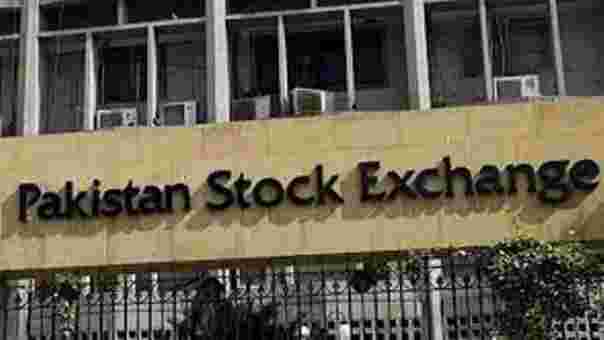Karachi, October 31, 2024 – Pakistan’s benchmark KSE-100 index of the Pakistan Stock Exchange (PSX) witnessed a significant drop on Thursday, plunging by 1,320 points due to widespread profit-taking activities.
The KSE-100 index closed at 88,967 points, down from the previous day’s close of 90,287 points, marking a 1.46% decrease.
Analysts at Topline Securities attributed the decline to a wave of profit-taking following a recent rally fueled by expectations of a policy rate cut. The sentiment shift was triggered by a dip in yesterday’s T-bill auction rates, which many investors saw as an opportunity to realize gains based on the “buy on rumor, sell on news” strategy. As a result, selling pressure emerged, dragging the KSE-100 index down considerably.
Among the day’s most traded companies in terms of value were SAZEW, with a trading volume of Rs 2.15 billion, followed by PSO (Rs 1.83 billion), ATRL (Rs 1.57 billion), PPL (Rs 1.22 billion), and TRG (Rs 995 million). Notably, SAZEW saw heightened activity due to arbitrage transactions, as nearly Rs 2.5 billion worth of trade was observed in SAZEW’s November futures contracts.
Banks and fertilizer companies were among the main contributors to the decline. The drop in share prices of key players such as MCB, HBL, MEBL, ENGRO, and EFERT collectively weighed down the KSE-100 index by approximately 551 points. This pullback in financial and agricultural stocks underscored the breadth of the sell-off across different sectors within the index.
Trading volumes and values for the day remained relatively high, with a total of 546 million shares exchanged at a combined value of Rs 24 billion. K-Electric Limited (KEL) emerged as the volume leader, with 73.6 million shares traded, highlighting investor interest in high-volume stocks despite the downward pressure.
Analysts suggest that while the profit-taking has led to a notable drop, the recent rally in the KSE-100 index reflects investor optimism about economic adjustments anticipated from the central bank. The rally had been driven by expectations of economic stability and potential monetary easing. However, today’s decline shows that investor sentiment can remain volatile, reacting swiftly to policy and auction outcomes.
Market experts caution that further volatility may persist in the near term as investors continue to navigate economic policy expectations and corporate earnings. However, they remain optimistic that the index could stabilize, especially if further economic reforms or favorable policy shifts materialize in the coming months.
